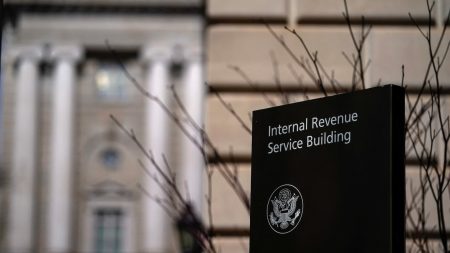Introduction: Federal Funding Controversy Over Migrant Housing in New York City
A political and financial storm erupted in Washington on Monday as Elon Musk, the head of the Department of Government Efficiency, criticized the Federal Emergency Management Agency (FEMA) for allegedly misusing disaster relief funds. Musk claimed that FEMA had sent $59 million to luxury hotels in New York City to house migrants, sparking a heated debate over federal spending and accountability. The acting administrator of FEMA, Cameron Hamilton, quickly responded by suspending the payments and promising to hold staff responsible. However, city officials and experts argue that the funds in question were legally appropriated by Congress for immigration-related costs, raising questions about the accuracy of Musk’s claims and the broader implications for disaster relief and migrant housing.
Elon Musk’s Criticism and the Suspension of Payments
Elon Musk, who has been consolidating power over federal agencies as part of his cost-cutting initiatives, took to his social media platform X to denounce FEMA’s alleged misuse of funds. He claimed that $59 million was sent to luxury hotels in New York City to house "illegal migrants," calling it a "gross insubordination" to President Trump’s executive orders. Musk also stated that the funds, which he claimed were intended for disaster relief, would be recouped. However, Musk provided no evidence to support his claims, and city officials countered that the money was part of a legally authorized program to reimburse costs associated with housing migrants.
In response to Musk’s criticism, Cameron Hamilton, the acting head of FEMA, announced that the payments had been suspended as of Sunday. Hamilton reposted Musk’s comments on X, signaling alignment with the criticism. However, neither Musk nor Hamilton provided specific details about the nature of the payments or the evidence behind the claims. The lack of clarity has led to confusion and disputes over whether the funds were misused or legally allocated.
The Shelter and Services Program: A Source of Controversy
The payments in question appear to be linked to FEMA’s Shelter and Services Program, which was established by Congress in 2019 to reimburse cities, towns, and organizations for costs related to housing and caring for migrants. The program was created in response to the increasing number of migrants arriving at the southern border, overwhelming local and state resources. The funds for the program are appropriated by Congress and are separate from FEMA’s main disaster relief fund, which is used to assist individuals and governments affected by natural disasters.
Despite its legal authorization, the Shelter and Services Program has become a target for Republican criticism. Some have falsely claimed that the program diverts money from disaster relief efforts, such as those for hurricane or flood victims. Others have questioned whether taxpayer dollars should be used to fund migrant housing in cities with right-to-shelter laws, like New York City, where everyone is guaranteed a place to stay.
New York City’s Struggle to House Migrants
New York City has been at the center of the controversy, as it has struggled to accommodate an influx of roughly 230,000 migrants since the spring of 2022. The city’s right-to-shelter laws require it to provide housing for anyone in need, including migrants. To manage the crisis, the city has relied on hotels and tent complexes to temporarily house migrants. Currently, the city shelters about 46,000 migrants, many of whom are part of families.
City officials have pushed back against Musk’s claims, stating that the funds they received were legally allocated and used for necessary expenses, including hotel stays, security, food, and other costs. A spokesperson for the city noted that the average nightly cost for housing migrants was $152, far below the rates of luxury hotels. The city has not been notified of any pause in funding and has continued to receive federal reimbursements through the Shelter and Services Program.
Political Tensions and the Future of FEMA
The controversy over the payments has highlighted deeper political tensions surrounding immigration, federal spending, and the role of FEMA. Elon Musk and Republican critics have framed the issue as an example of government waste and mismanagement, while city officials and Democrats argue that the funds are essential to address a humanitarian crisis.
The debate also comes amid growing uncertainty about FEMA’s future. President Trump has threatened to dismantle the agency, and a conservative blueprint for his second term, known as Project 2025, has proposed relocating FEMA to another federal department. Such changes could significantly impact how the government responds to natural disasters and immigration challenges.
The situation has further polarized an already contentious political landscape, with critics accusing Musk and Republican leaders of using the issue to advance their agenda of cutting federal spending and shrinking the workforce. Meanwhile, advocates for migrant rights and disaster relief argue that the funds are necessary to uphold legal and moral obligations to those in need.
Conclusion: Accountability, Transparency, and the Need for Reform
As the controversy continues to unfold, questions remain about the accuracy of Musk’s claims, the legality of the payments, and the impact of suspending funding for migrant housing. While accountability and transparency are essential in the use of federal funds, critics warn that political rhetoric should not overshadow the humanitarian needs of migrants or the critical role of FEMA in disaster relief.
The debate has also raised important questions about the allocation of federal resources and the balance between addressing immigration challenges and preparing for natural disasters. Moving forward, policymakers must work to ensure that funding is used effectively and that the needs of all stakeholders are considered. Whether through reforming existing programs or finding new solutions, the goal should be to create a system that is both accountable to taxpayers and compassionate toward those in need.















